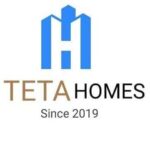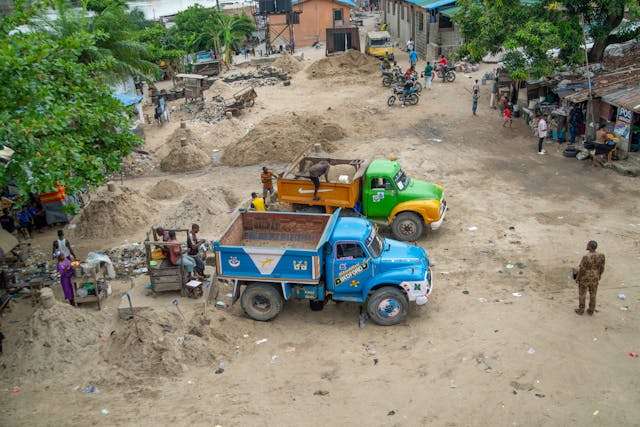Infrastructure is a critical factor that significantly influences property values in Nigeria. From roads and utilities to public transportation and digital connectivity, infrastructure affects how appealing a property is to potential buyers. When infrastructure is lacking or poorly maintained, property values often decline. Being aware of this impact is crucial whether you’re investing in real estate or buying a home in Nigeria. This piece helps you understand how to value a house in Nigeria, and things to consider before investing in areas with poor infrastructure.
How Can Poor Infrastructure Affect Property Values in Nigeria?
Limited Accessibility
Properties in areas with poor road networks or few access points often suffer in value. In Nigeria, frequent traffic congestion on poorly maintained roads can add hours to commuting times, which can make a location less desirable to buyers, especially those seeking easy access to schools, hospitals, offices, and markets.
Unreliable Utilities
Inconsistent utilities like water, electricity, and waste management are prevalent issues in some parts of Nigeria. Areas with frequent power outages, inadequate water supply, or irregular waste collection may struggle to maintain property values, as these factors make life less convenient and increase living costs for residents.
Lack of Public Transportation
The availability of public transport options, like BRT buses in Lagos or proximity to bus stops where you can easily board a bus to your destination, plays a vital role in property demand. Properties far from bus stops or areas with limited transportation options may see lower demand, especially for people who rely on public transport for work or school. This limited demand often results in reduced property values.
Flooding and Drainage Problems
In most parts of Nigeria, poor drainage systems or high-risk flood zones, particularly in cities like Lagos during the rainy season, can have a severe impact on property values. Properties in areas prone to flooding not only require higher insurance costs but often are expensive to maintain, making them less attractive to buyers.
Poor Connectivity
In today’s digital age, reliable internet and telecommunications are very important, especially for those who have remote jobs. Areas in Nigeria lacking strong internet coverage or that have weak telecommunication signals may lose appeal to buyers, particularly younger or tech-savvy individuals. This lack of reliable internet or telecommunication can contribute to reduced demand and ultimately lower property values in affected areas.
In Nigeria, the quality of local infrastructure has a direct impact on property values. Issues such as poor accessibility, unreliable utilities, limited public transportation, and flood risks all play a role in determining the desirability and value of a property.
For buyers and investors, paying attention to these infrastructure factors is crucial in ensuring a property retains or even increases its value over time. It will also help you to determine if a property has the potential of increasing in value within a given period.
Sometimes, however, government policies like road construction can boost an area, and increase the value of the properties in the location. For example, in Epe, before the year 2015 when there was just a single-lane road from Ibeju-Lekki to Epe and into Ijebu-Ode, a plot of land cost as low as N250,000. Today in 2024, following the ‘dualization’ of the road from Ibeju-Lekki to Epe, a plot of land in Epe is as high as N8m and more. This means that if you bought a plot of land in Epe in 2014 for N250,000, today, at N8m, your land would have yielded 3,100% increase.
Inasmuch as there are drawbacks when buying a property in areas with poor infrastructure, however, with patience and proper research to know what the blueprint of a given area is, or whether there is government-proposed infrastructure, you can land yourself a great property deal that will yield amazing returns for you.
Looking to invest in property in Nigeria? Make informed decisions by understanding the impact of local infrastructure. Contact us today for expert real estate advice and guidance.

